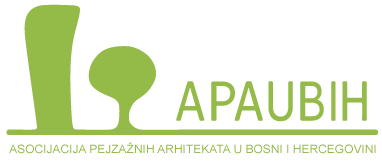Dobrovoljna, nevladina, interesna, nestranačka i neprofitna organizacija stručnog, profesionalnog i društvenog karaktera.
The ReLAND Project
- Restoring landscape for community recovery -
Association of Landscape Architects in Bosnia and Herzegovina & Green Council BiH
November 2020-November 2021
Description: The RELAND supported self-recovery process of the local communities affected by COVID19 situation through planing and building multifunctional green open space in municipality Center street Nahorevska 136.
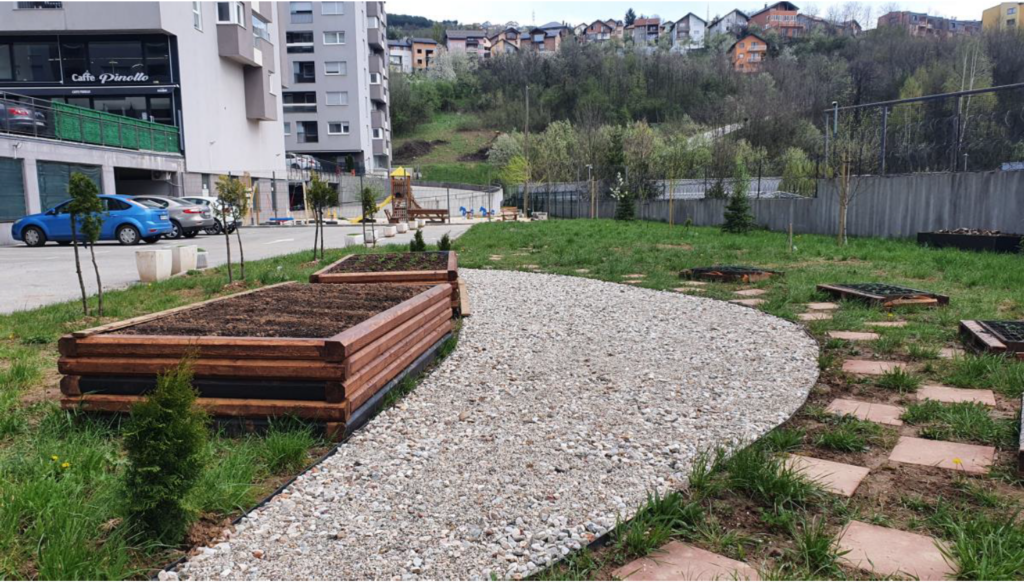
Raised Garden Beds and Pathways in the ReLAND Project Site
The ReLAND project, initiated in 2020, focused on transforming underutilized urban spaces into functional and sustainable areas to support local communities. The primary site, located at Nahorevska 136 in Sarajevo, was redesigned to promote urban agriculture, recreation, and community engagement. This initiative was supported by the Global Greengrants Fund and other partners, addressing the challenges of urban sustainability while fostering local participation.
Project Location
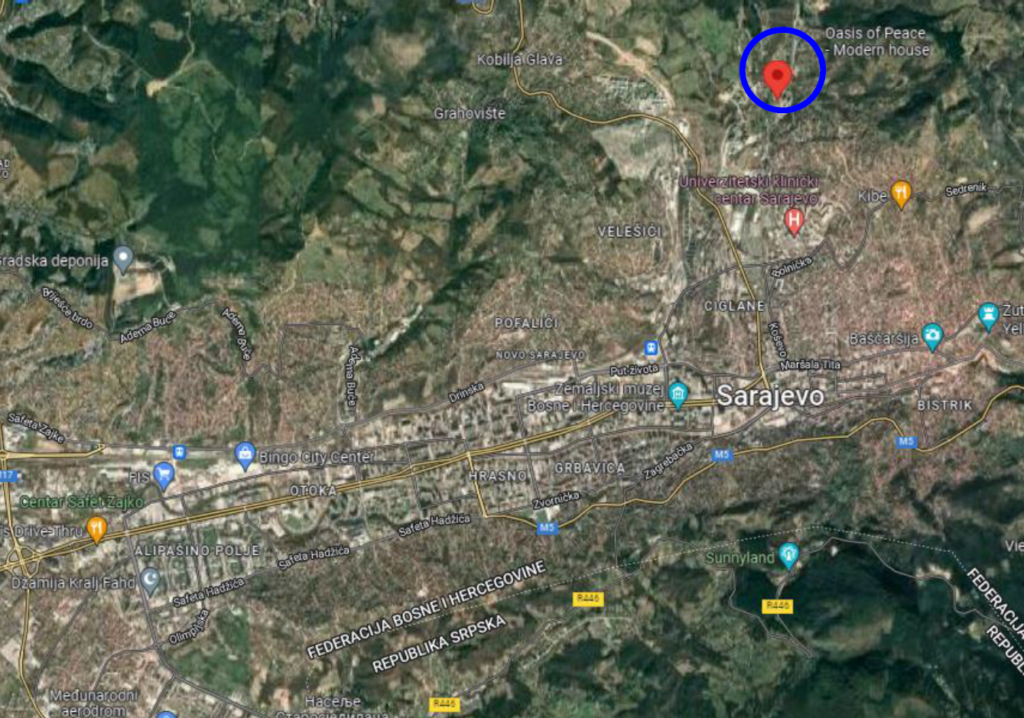
Objectives and Scope
The project aimed to rehabilitate open spaces for multiple purposes, including food production, socialization, and outdoor recreation. In collaboration with local residents and stakeholders, the initiative introduced features such as elevated garden beds, a small orchard, and seating areas, ensuring the space could meet diverse community needs. The design also preserved the site’s natural green areas, maintaining its balance between functionality and ecological integrity.
The area remained largely underdeveloped due to delays in redevelopment plans, limited accessibility, and fragmented land use. Additionally, the presence of the U.S. Embassy on part of the territory restricted the site’s openness. With much of the campus still in transition, the project aimed to address these challenges by reimagining the campus as a dynamic space that integrates education, community, and sustainability.
The project recognized the importance of open spaces, such as pathways, gardens, plazas, and even neglected areas like parking lots and wastelands. These spaces were seen as opportunities to create a cohesive and vibrant environment that serves not only the academic community but also the city of Sarajevo.
Technical Plan & Details
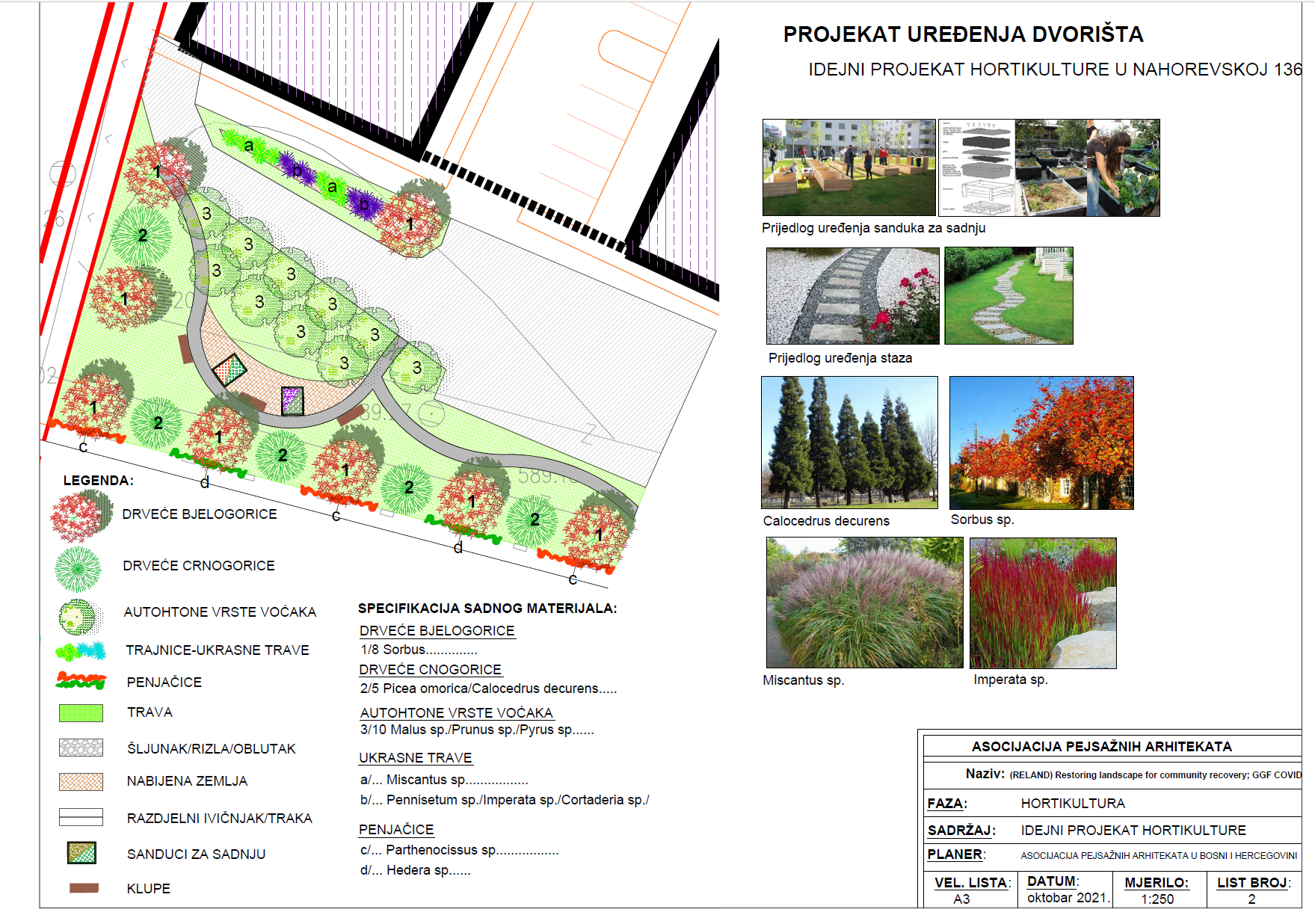
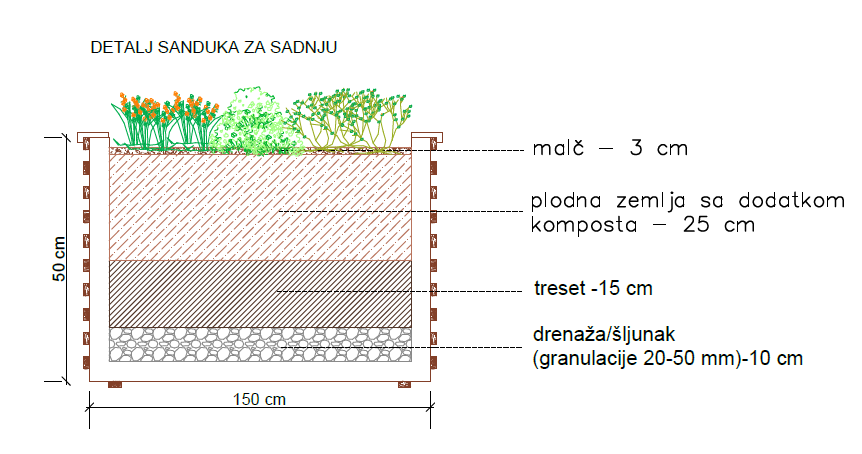
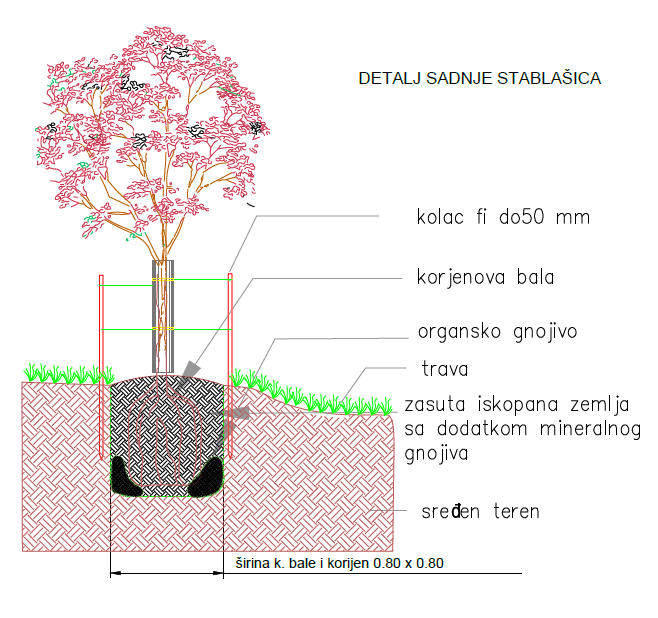
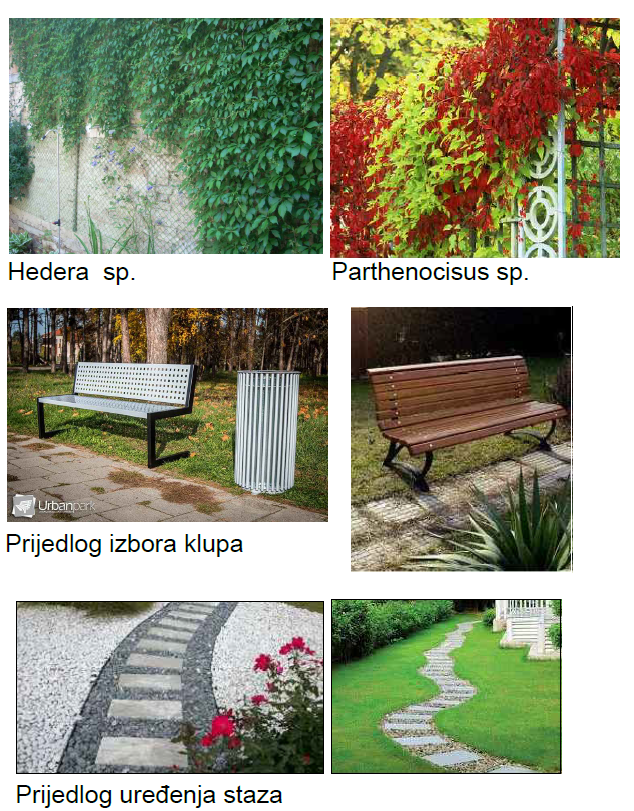
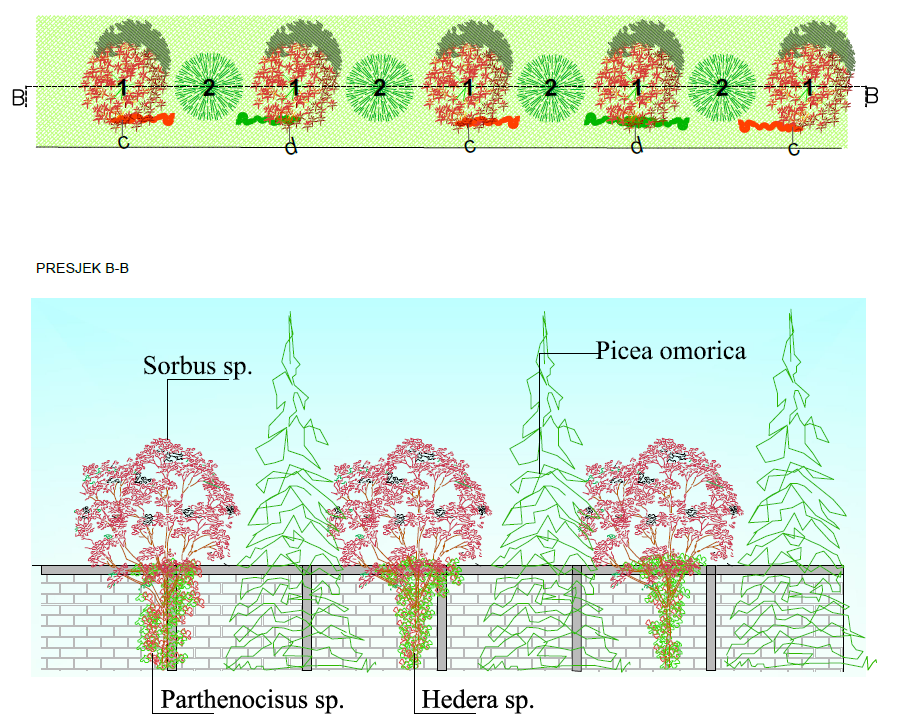
Local residents played a crucial role in the design and execution of the ReLAND project. Their input, gathered through workshops, surveys, and direct discussions, helped shape the final plans. This collaborative approach fostered a sense of ownership and engagement within the community.
The installation of raised garden beds, using soil of controlled quality, introduced sustainable food production to the site. These gardens now provide residents with access to fresh fruits and vegetables in a safe and clean environment.
The redesigned space includes new seating areas and pathways, creating a welcoming setting for relaxation and social interaction. Tree planting and additional greenery have improved the site’s visual appeal and provided shaded areas for comfort.
Sustainability was a key focus throughout the project. Locally sourced materials were used for the garden beds, and native plants were carefully chosen to suit the environment. A maintenance plan was established with the community to ensure the site remains functional and well-kept over time.
ReLAND stands as a strong example of urban renewal, blending ecological restoration with community-driven solutions. By integrating urban agriculture with green infrastructure, the project addresses challenges like food security, environmental sustainability, and social inclusion. It demonstrates how neglected spaces can be transformed into valuable resources, enhancing both the environment and the lives of those who depend on it.
Highlights from the Construction, Implementation, and Community Engagement of the ReLAND Project
To explore the full details of the ReLAND project, download the complete project documentation below
